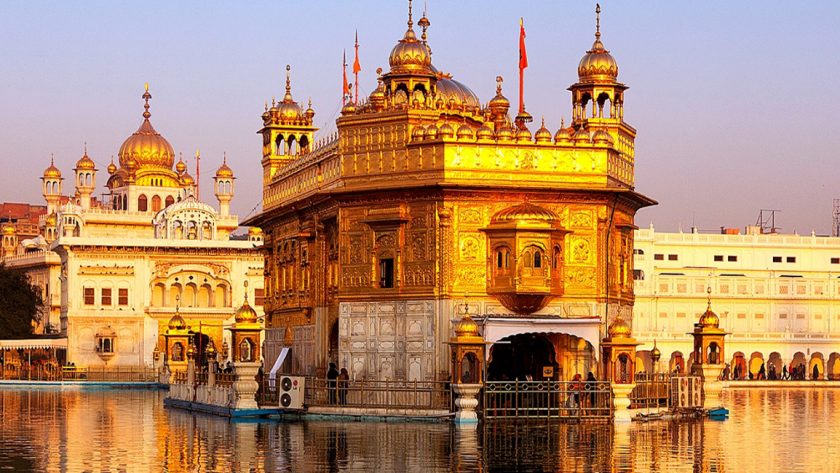Let’s get this straight right up front. India is a pain in the ass. Buying train tickets, going to the bank, even getting a rickshaw or taxi – most often all a pain in the ass. But worth it. Worth it in ways that you cannot explain to someone who has not been to India.
For each moment of excruciating bowel pain, there are two of overwhelming beauty. For each business transaction that makes you ache for fixed (albeit inflated) prices, there is a conversation or a moment of understanding that blows your world wide open. Worth it.
But to smooth out some of the inevitable rough spots, I’ve compiled some tips. Don’t sweat it, though, the rough spots often make the best stories anyway.
Hint 1: “No problem” means you’re in trouble. It’s incredibly common for locals to say “no problem” all the time – they accompany it with a little head waggle that kind of looks like our “so-so” gesture – even when it is obviously quite a big problem. “No you cannot board this plane, no problem.” “Yes, we have sold your room to another traveler, no problem.” It’s infuriating and hilarious all at once.
Hint 2: Don’t trust the touts. Seems pretty obvious, but the touts are tricky. There are scams involving fake train and bus tickets (even fake trains and buses), fake riots in the area of your hotel (so you have to go to another hotel which just happens to give your driver a commission), fake policemen warning of these fake riots, fake phone calls to fake hotels with fake overbooking so that you have to, surprise, stay in the other hotel which happens to give your driver a commission, fake tour guides, fake temples. Ask a lot of questions and don’t budge from what you want.
Hint 3: Come to an agreement before you get in the rickshaw. Autorickshaws are a great, if somewhat exhilaratingly dangerous, way to get around the cities. You’re crammed into a small bubble of metal powered by a two-stroke scooter engine and driven like a moto as they zip in and out and around other vehicles, speeding up and slowing down, swerving and screeching. They are terrifically loud (engine plus incessant honking) and their exhaust will turn your boogers black. Just make sure you’ve set the price before you board. Double check the cost for everyone in the group. If they don’t agree with your price, walk away. Most times as soon as you approach another driver they’ll quickly concede, but even if they don’t, by making things clear up front you’ll save a lot of annoyance later. We often tipped once it was all over, if everything went the way we’d agreed, so they ended up making money off us anyway, but it really makes things much more pleasant if you all know what you’re in for.
Hint 4: Belly beware. You are most likely going to get sick in India. Everyone does. But you don’t have to let that worry run your trip, nor should you be stupid. Don’t drink from the glasses at the roadside stands. At best, they’ve been rinsed in dirty water since the last person drank from them. Check seals on bottled water or filter your own (we used the Exstream filtering system, which looks like a sports bottle, relatively light, no pumping and certainly cost-efficient). Wash your hands after using the bathroom (or road, or path, or bush). And watch your poop. If you’ve been pooping water for more than a day, get yourself some electrolyte replacement powder (available at any pharmacy, and there are lots) and make yourself drink it. If you’ve been pooping rocks, make sure you drink more water and find some boiled or peeled veggies to clear out. We found bananas easily, and they always help. We took multivitamins sometimes and Vitamin C in megadoses before getting on to trains or busses. We risked food at non-Lonely Planet-sanctioned eateries and sometimes regretted it, but we did not die. And we had some really good food. I had some potato pancake thing with baked beans in Agra that changed my life. I search, in vain, to recapture that culinary bliss and have found only pale imitations.
Hint 5: Hire guides. When you arrive in a park, at a monument, or really anywhere that tourists might go, men offering to guide you will immediately surround you. This service is usually cheap and you learn a lot more than the guidebooks write up, plus you can ask questions. But first, make sure your guide speaks good English. Talk to him for a while-make sure he makes sense to you. We hired one guide who was really nice, but explained to us that the tunnels at Sarnath were built to keep the local Buddhist nuns from fighting the Koreans. We had a good laugh about those belligerent nuns, but do not believe we were actually learning anything about Indian history. We also had a fake tour guide who made up a lot of stuff, but it was amusing stuff (his English was perfect, though, so this hint won’t really help you avoid that one).
Hint 6: Things are going to cost you more. Just accept this and travel will go a lot smoother. Don’t even bother to look at the scheduled rates for train tickets, because you will never pay this rate. Talk to other travelers or look in guidebooks for a general idea of how much train and bus trips should cost, but don’t actually expect these rates except on rare occasions. Train tickets are more regulated than bus, and you will be paying a standard rate, but it will be more than almost anyone else on the train. The ticket taker usually sets bus prices, and negotiation is almost always futile. You have a choice: get enraged, fight, fume and maybe, maybe pay less or stay calm, accept that this is a country of crippling, desperate poverty, that you are lucky that you have the money to travel, and that you really are going to get a lot of bang for your buck. We tried both methods. Calm was better, but angry won sometimes.
Hint 7: Bargain bargain bargain. Okay. You are going to pay more, but you don’t need to pay lots more. If you’re looking at, say, a bedspread near Connaught Place on a Sunday, and the woman selling it to you says that it’s only 1500 rupees, you are not, under any circumstances, to pay 1500 rupees. My friend’s method was to take 30% of their opening price and start from there. I would figure out what I was willing to spend and take 20% off that so that I’d have room to come up. My friend always got better deals than I did, but he was sometimes laughed out of the negotiation. Always smile. This is not an offensive, but a game. At some point, you’re going to get to a number around which negotiation becomes difficult – while this may not be their cost, or even close to it, you’ll just have to understand that more negotiation just isn’t going happen. Decide whether you’re willing to spend that amount for that item, not whether you think it’s “worth it” (it is) or whether you’re getting a good deal (you’re not) and either buy it or don’t. The end.
Hint 8: Maintain your sense of wonder. You are an incredibly lucky, blessed, privileged person who gets to go see and experience one of the most vibrant cultures on earth. You are not owed anything. Keep your eyes, nose, ears open – India is a full-on five-sense assault and you don’t want to miss it. Make sure you pay attention all the time. Let yourself sleep in, take it slow, lay low sometimes – you are going to miss something, no matter what, so let yourself enjoy the trip. Take lots of pictures, buy lots of presents, write lots of letters and journal entries, because you won’t want to forget it. And remember, as soon as you leave, and get a hot shower, a palatable meal, a straightforward business transaction… you’ll wish you were back in India, and you won’t be able to explain why.



